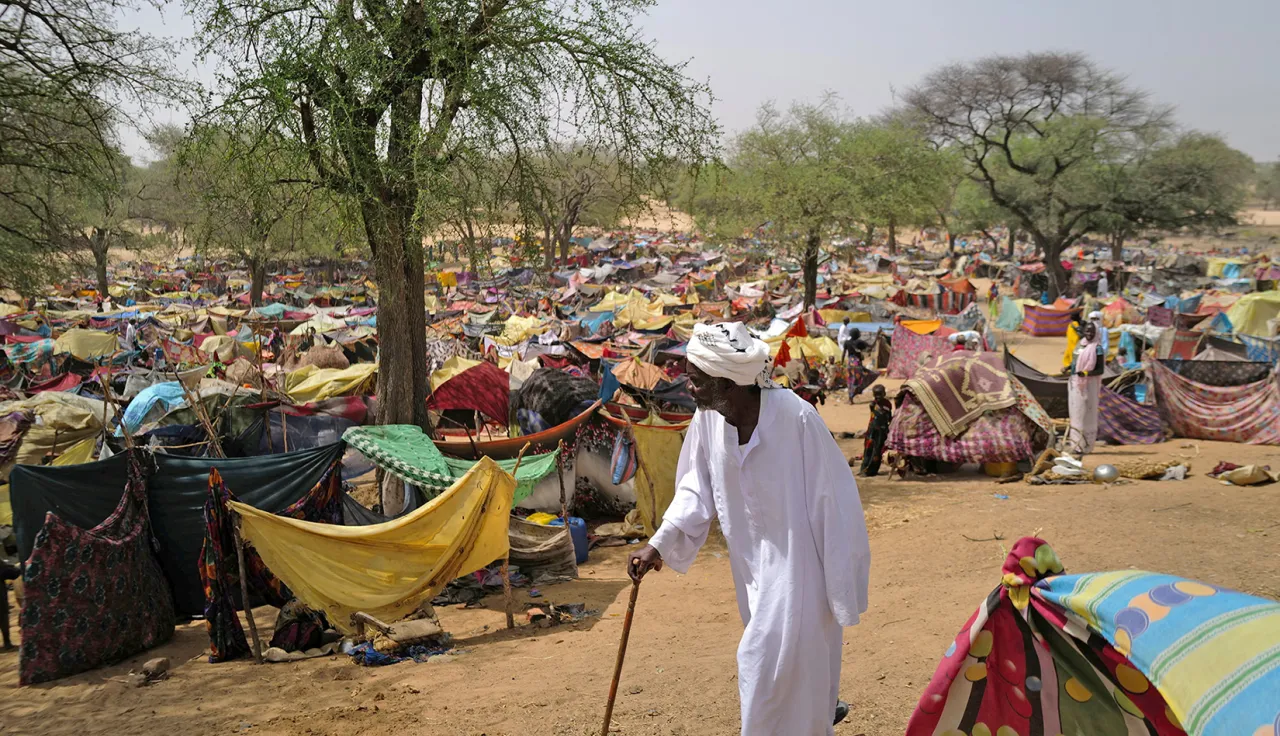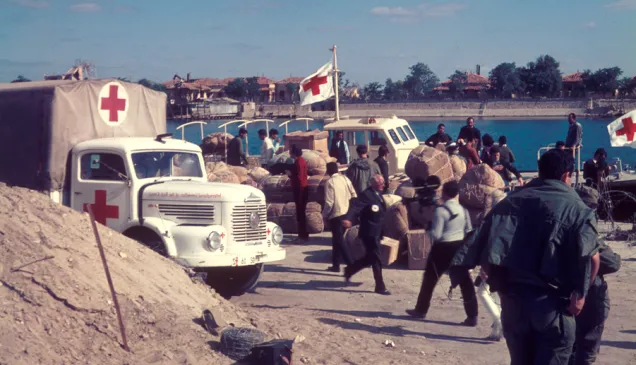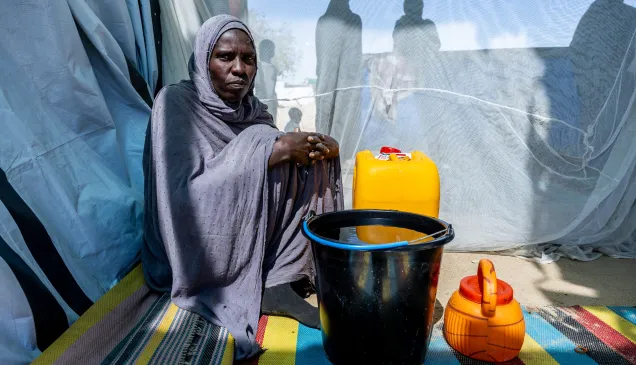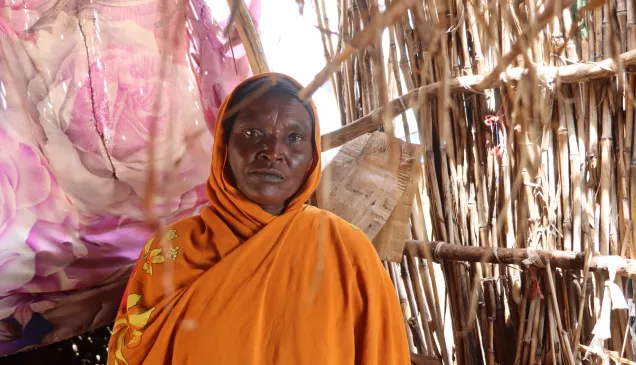“Suffering defies comparison”: One month of devastation in Sudan

A month into the conflict in Sudan, Alfonso Verdú Pérez, ICRC’s head of delegation in Sudan, sheds light on the pressing humanitarian needs and some of the challenges the team has faced since the fighting between Sudanese Armed Forces (SAF) and Rapid Support Forces (RSF) erupted on 15 April.
"Suffering defies comparison and measurement. Each person's experience is unique and complex. Consider the plight of those compelled to abandon their homes amidst a rapidly deteriorating situation. Civilians, including the elderly, mothers, children, and individuals with disabilities, find themselves trapped in cities like Khartoum, Al-junaina, Zalingay, and Nyala. Their circumstances are dire, with critical shortages of food and water, and no means to escape."
What are the key challenges you, as a humanitarian worker, are currently encountering in providing assistance and relief in Sudan?
It is deeply disheartening to witness the immense suffering in Khartoum, Darfur, and other parts of Sudan, as well as the border areas with Egypt and Chad. Despite having the necessary resources and means, including supplies and a dedicated team in Port Sudan, it remains incredibly frustrating that we are unable to provide assistance and relief at the scale and speed that the people of Sudan desperately require. Sometimes, this is due to the administrative and bureaucratic hurdles; others, due to the lack of provision of security guarantees for us to assume the calculated risks we are ready to take; sometimes, both at the same time.
An essential aspect of aid delivery—communication—has been significantly disrupted. With poor internet connection and phone lines disrupted, operations face tremendous challenges. These are my primary sources of frustration today.
How have attacks on healthcare workers and hospitals impacted the provision of medical services in Khartoum during the conflict?
In Khartoum, the situation regarding healthcare services amidst the conflict is dire. Approximately 80 per cent of hospitals and health facilities have ceased functioning due to attacks, resulting in a critical shortage of essential supplies, including food.Operating theatres and other crucial services require electricity and maintaining proper hygiene standards is challenging due to water scarcity. This clearly shows how interconnected systems and sub-systems are in a city; and how warfare can disrupt that interconnectivity, increasing the impact on the lives of hundreds of thousands of people.
Furthermore, there is a pressing need to collect, identify, and register the deceased. This task is typically carried out in collaboration with our colleagues from the Sudanese Red Crescent Society, who are doing this in Khartoum, El Obeit or Zallingey, with our support. The activity is critical since it prevents these people from going missing; we would be able to answer the request of their loved ones when they are able to come to us. We have managed to establish a 'hotline' to receive requests from families about missing relatives, who were maybe detained or displaced. The dead are amongst them, unfortunately. The challenges faced in Khartoum are immense, affecting the well-being of healthcare workers, access to essential resources, and the overall functioning of medical facilities.
What role does the International Committee of the Red Cross (ICRC) play in encouraging the implementation of international humanitarian law (IHL) in the conflict?
It is not only a legal duty, but a matter of life or death. We continue to urge the parties to follow international humanitarian law both publicly and privately. The situation in Khartoum or Darfur today offers a perfect opportunity for the parties to the conflict to put "paper into practice", to make IHL happen on the ground. We are telling them we are ready. The ICRC has the history, the experience, the mandate and the capacity to support them, together with the Sudanese Red Crescent Society, to do so.
What actions has the ICRC taken so far?
To date, the ICRC has donated medicines and medical supplies to three hospitals and provided body bags to the Sudanese Red Crescent Society for the collection of over 40 human remains, with the operation continuing as we speak. We have carried out important neutral intermediary role operations, such as the transfer of Egyptian soldiers captured by the Rapid Support Forces (RSF) to the Sudanese Armed Forces (SAF). A hotline, collecting allegations of arrest, has been put in place. The ICRC has also been one of the first international organizations to be able fly to Port Sudan with tons of medical aid and highly experienced colleagues. Perhaps it is minor, but we have also been able to ensure a regular presence in Khartoum, showing solidarity with our resident colleagues, and trying to safeguard our delegation from looting. Right now, a team is getting ready to come back to organize a transfer of wounded soldiers; or the would-be first visit to a place of detention. However, these actions are small compared to the larger scope of work required, and to our current preparedness and readiness. Urgent humanitarian efforts are still needed.
What needs to happen today?
A month after the conflict, we want to emphasize the importance of adhering to the Jeddah agreement and principles of international humanitarian law and translating it into actions on the ground that benefit the Sudanese population. In addition, it is crucial for all parties to streamline administrative procedures and processes to allow for efficient and effective humanitarian action. This includes unblocking stocks in Port Sudan and providing aid to those in need in Khartoum and Darfur. By doing so, those with the power to act will be contributing to saving human lives.



